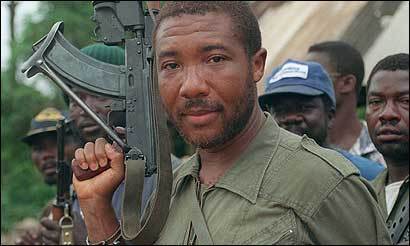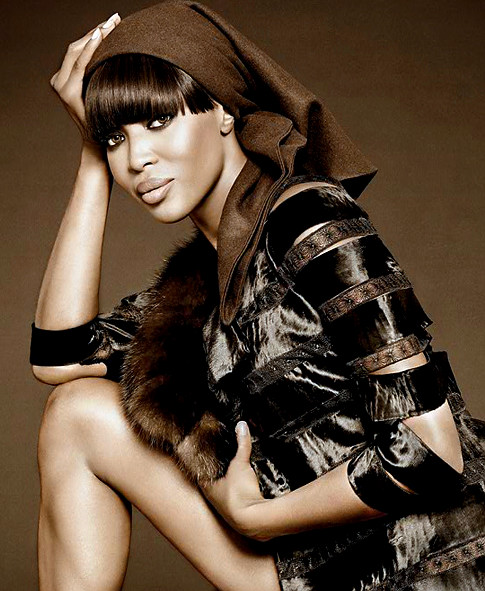 I recall the first time I encountered Muammar Gaddafi. I cannot recall exactly when in the late 80s it was, but I know for sure that I was a pre-teen, still much in awe of the world outside and on the lookout for heroes. That first encounter was in print, in a copy of Reader’s Digest. I also cannot recall if he was on the cover or not, but I remember the title of the article about him vividly as if I am looking at it now, with the bold print that states “Gaddafi, son of a tailor!” looking up at me from the compact print size that is Reader’s Digest’s renown. Though subsequent encounters were also via the media, new and old, I feel I know the man the west is wont to call “mad”
I recall the first time I encountered Muammar Gaddafi. I cannot recall exactly when in the late 80s it was, but I know for sure that I was a pre-teen, still much in awe of the world outside and on the lookout for heroes. That first encounter was in print, in a copy of Reader’s Digest. I also cannot recall if he was on the cover or not, but I remember the title of the article about him vividly as if I am looking at it now, with the bold print that states “Gaddafi, son of a tailor!” looking up at me from the compact print size that is Reader’s Digest’s renown. Though subsequent encounters were also via the media, new and old, I feel I know the man the west is wont to call “mad”
That particular copy of Readers Digest was old even then; a memento from my dad’s magazine collection days in the 70s, saved with several others in a large box that he made everyone understand is precious.
That article, unlike the present bile spewing ones that you will find in most western magazines, was written in a voice whose worship-like tone I still hear, more than twenty years on, and talked at length about the famed leader’s freedom fighter attributes – Guevara-like freedom fighting ideals and how much he was loved by his people.
With this first impression and later insights about what Gaddafi was doing in Libya, I grew up to admire the Brother Leader greatly. His eccentric streak aside, and judging by the fact on ground, no matter how devilish the western world paints Gaddafi, even they, grudgingly, admits that the man was first a patriot and improved the life of his people greatly.
I say this with all sense of decency and forthrightness, for Libyans, even the rebels -- when they stop to think about it -- will greatly admit that their erstwhile envious place in Africa and the world, was on account of the doggedness of the man Gaddafi. That he was a dictator is not a thing that anyone would argue about, but that he was the best of the lot in a region that until this year knew only that form of governance, should also not be in doubt.
It is with this sense of benevolence that much of Africa remembers Gaddafi. True, our opinion does not count for much in the world at present, but within our hearts and our words would the other side of Gaddafi’s story be saved – that story of a great man that looked out for his people and made them the envy of all of Africa.
A lot have been said about Gaddafi not having a choice in the face of enormous oil wealth but to give something, even if just a living wage to his subjects, but a clear truth should not be overshadowed by prevailing fact. Libya is not the only oil or resource rich country in Africa, but Libya is the only one where the citizens led a relative good life. It is common knowledge in Africa that Libyans were so well taken care of that economic migrants, from Sub-Saharan Africa, Asia, Europe and elsewhere, did much of their manual labour and household chores.
A lot is also being said about Gaddafi’s subjugation of the Libyan people's freedom. People make a lot of noise about freedom, but forget that freedom is relative. Westerners, with their welfare systems and whatnot are prone to grandstand and expect the rest of the world to toe their democratic principles, but forget that their brand of democracy is not a one-size-fit-all and that their leaders have and are still supporting some of the world’s most repressive states. Do Saudi Arabia, Yemen, Bahrain and lately Egypt and Tunisia ring a bell?
Some others call him a sponsor of terrorism, but when we consider that Gaddafi backed the IRA, ANC, Liberian rebels who fought against Samuel Doe, and factions in the Sierra Lone conflict, all revolutionaries who like him fought against an establishment that was oppressing them one wy or the other. In this guise, Gaddafi is essentially the freedom fighter that old Reader’s Digest article made him out to be.
Gaddafi was killed on October 20 2011 in his hometown Sirte in the final hours of an 8 month, NATO inspired civil war. While many are questioning the sort of death a man that lived for his country died, I feel that that was the only exit option available to the Brother Leader who had a life or death bounty on his head.
While we may hear reverse statements from the western leaders, who were quick to celebrate the death of a man whose hand they clasped happily in the past, as more people frown at the manner of his death, their complicity in his death and the destruction of his country should not be forgotten.
As an emancipated African, I pride myself with the fact that much of Africa mourned the death of the great man and many wished a leader of his ilk would happen to their nation in their lifetime. While the western press and governments take pride in their ability to get away with murder and nation wrecking, Africans are wising-up to their antics and hopefully would not allow them the freehand to run shod around the continent for long.
Sleep well Lion of Tripoli, you did not live in vain, and Libyans, when the fog clears from their eyes will recall this and rue your death.


